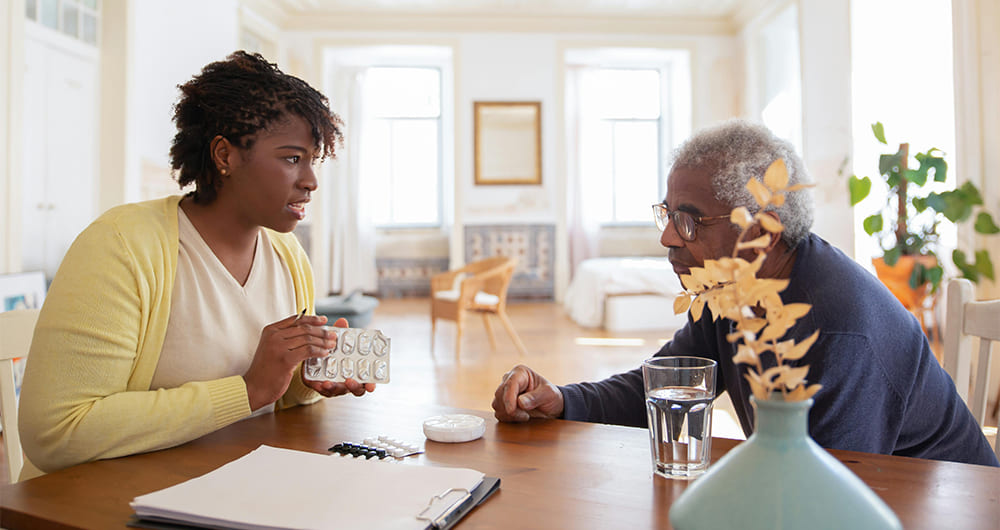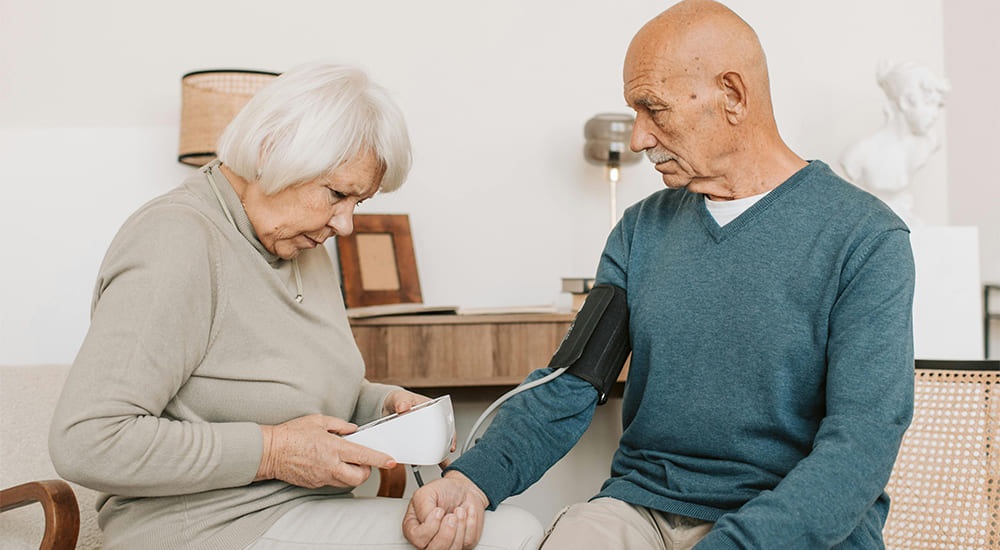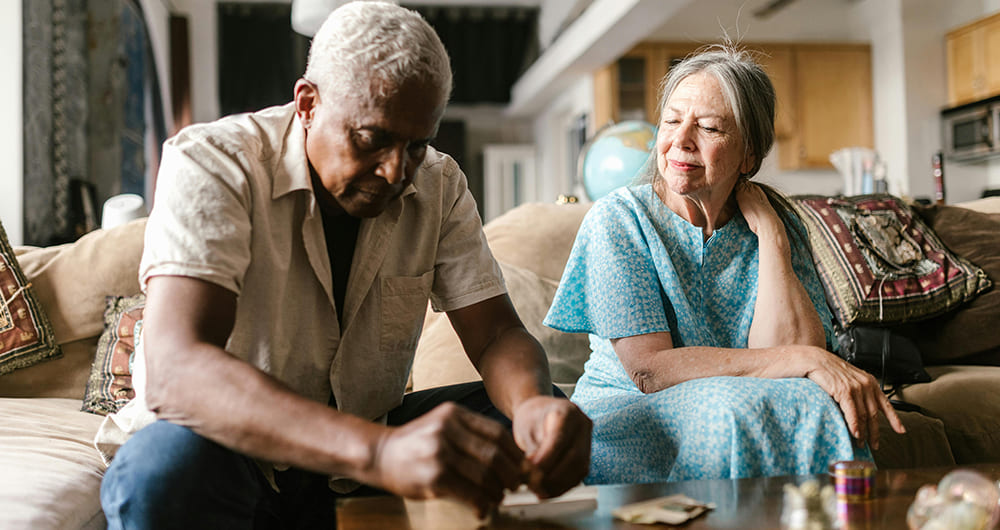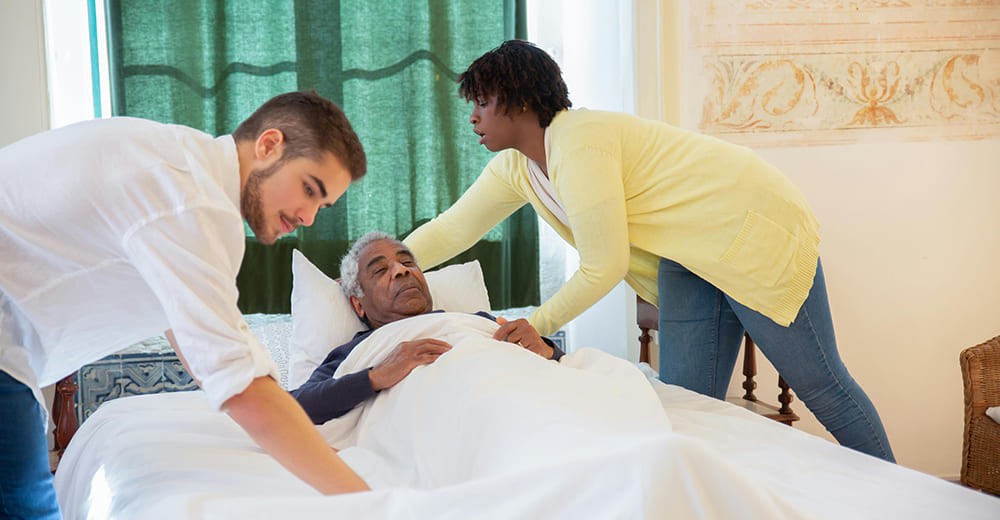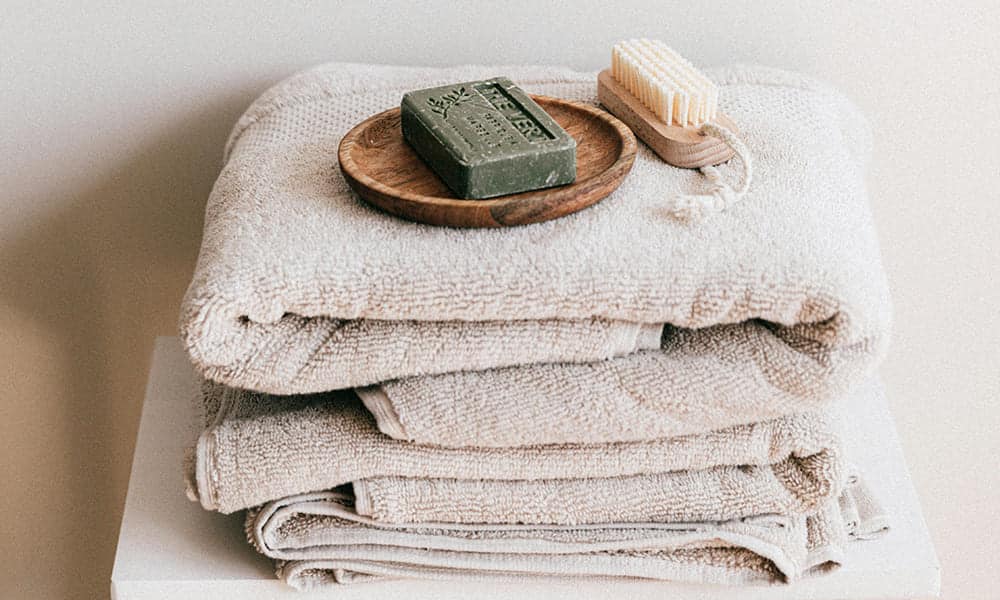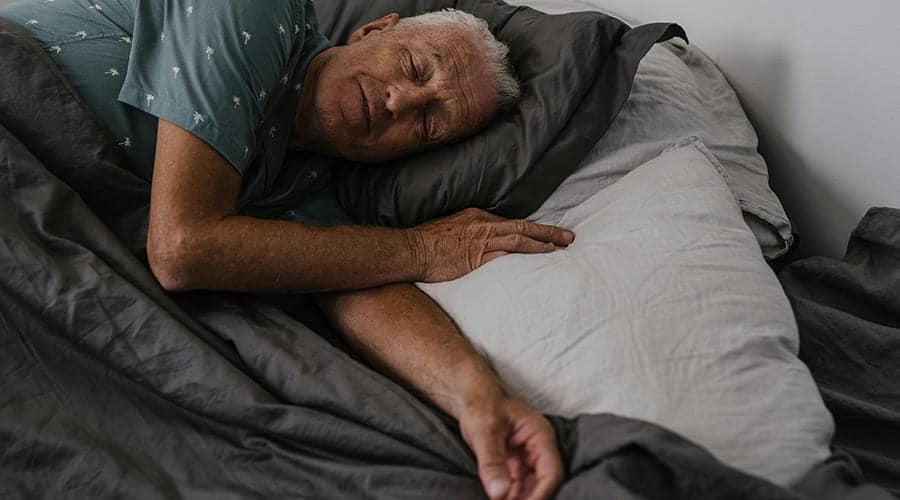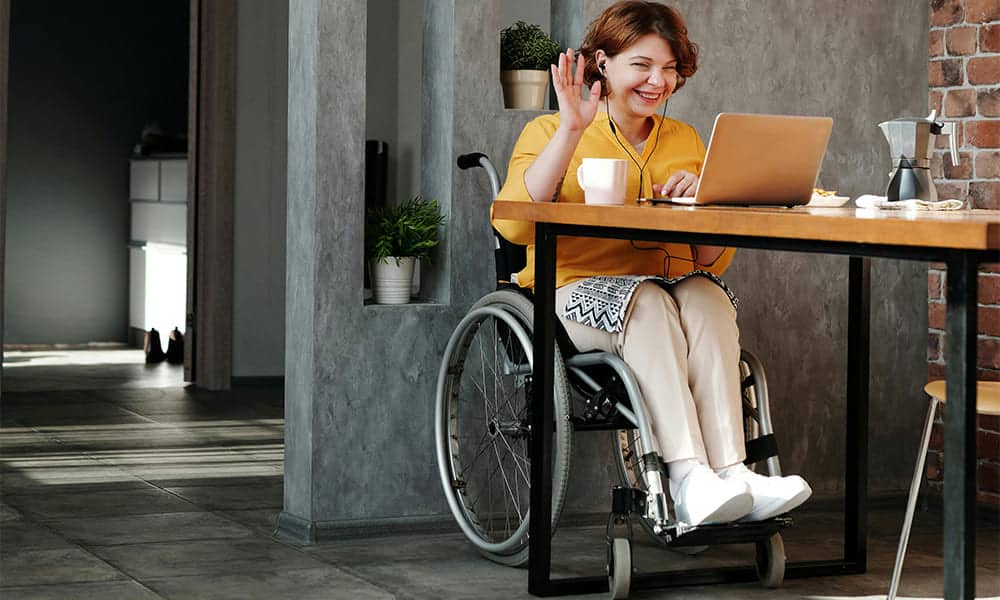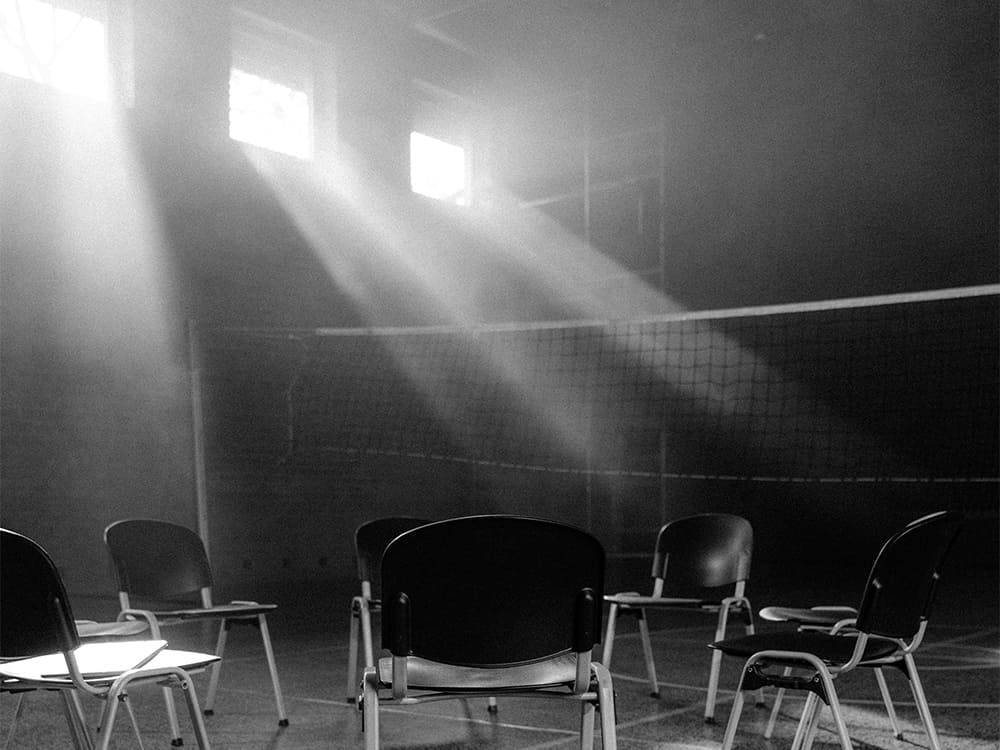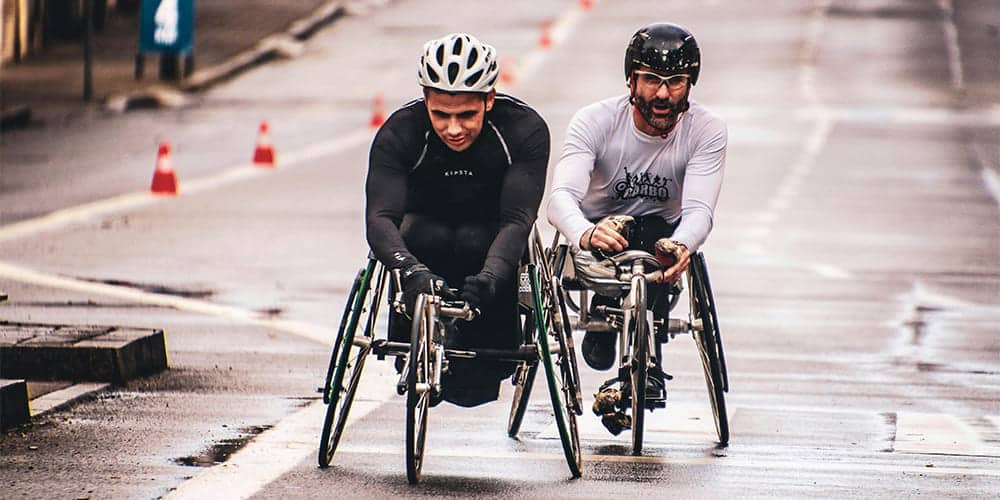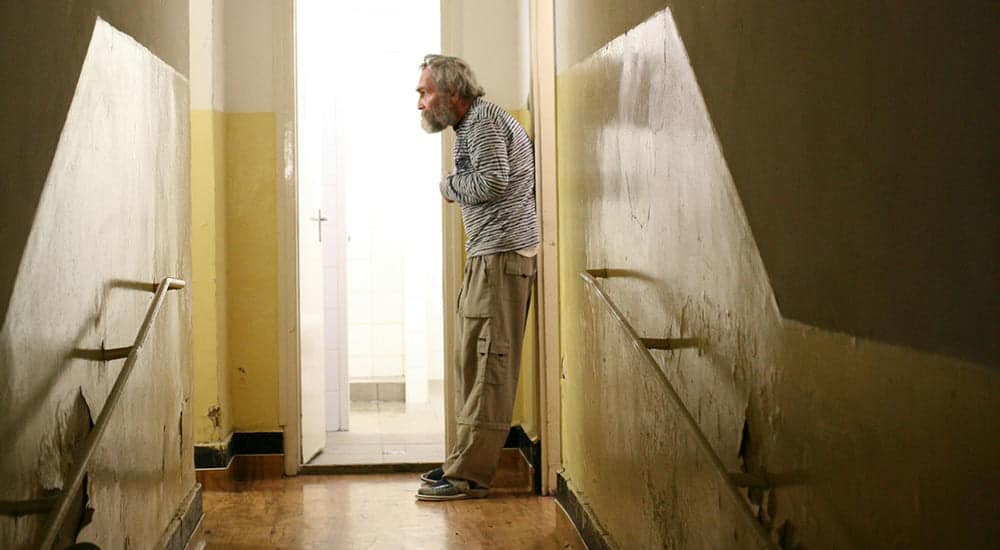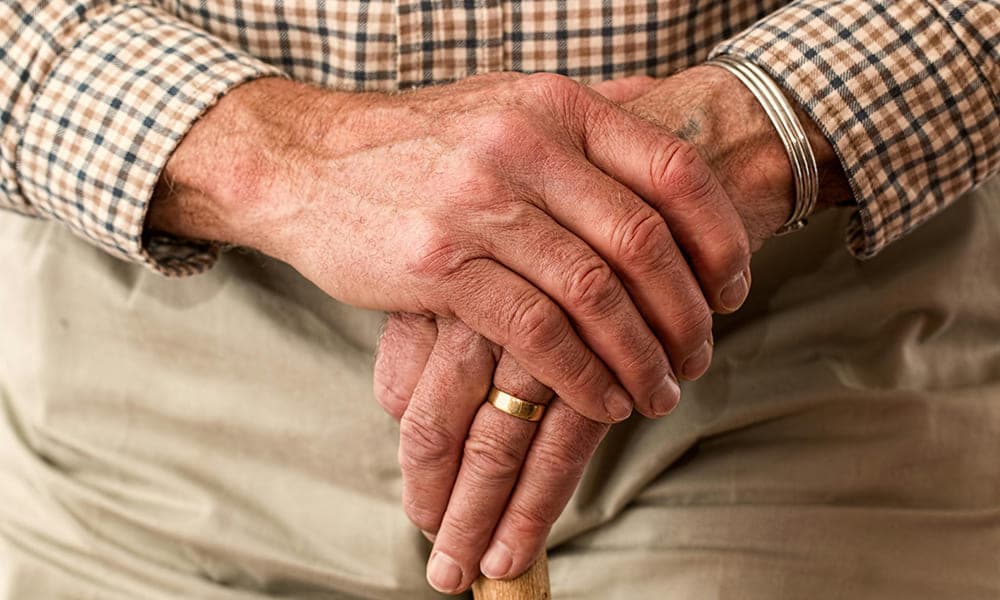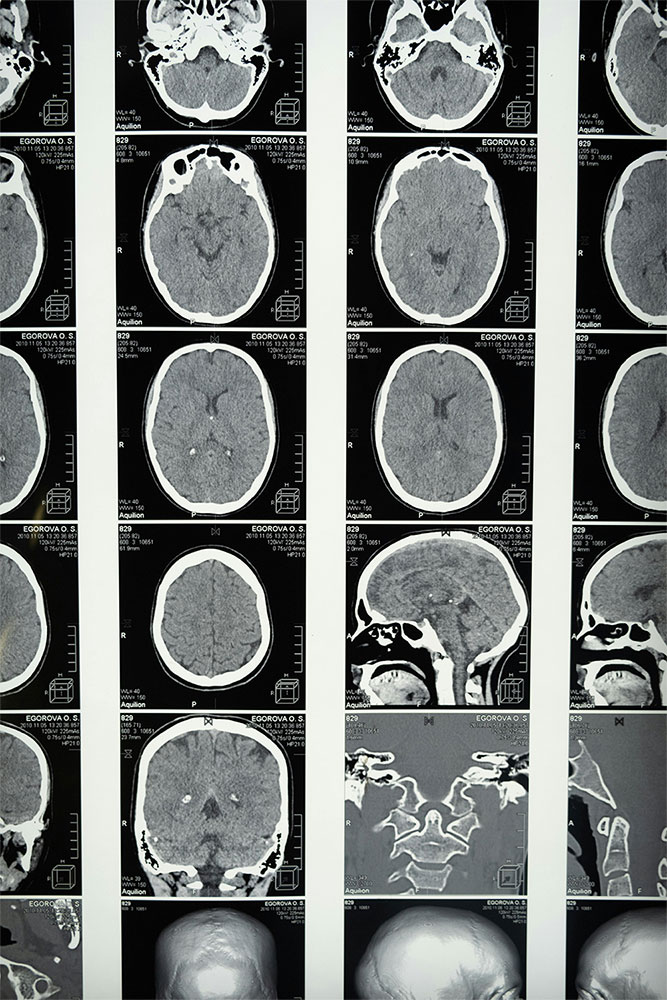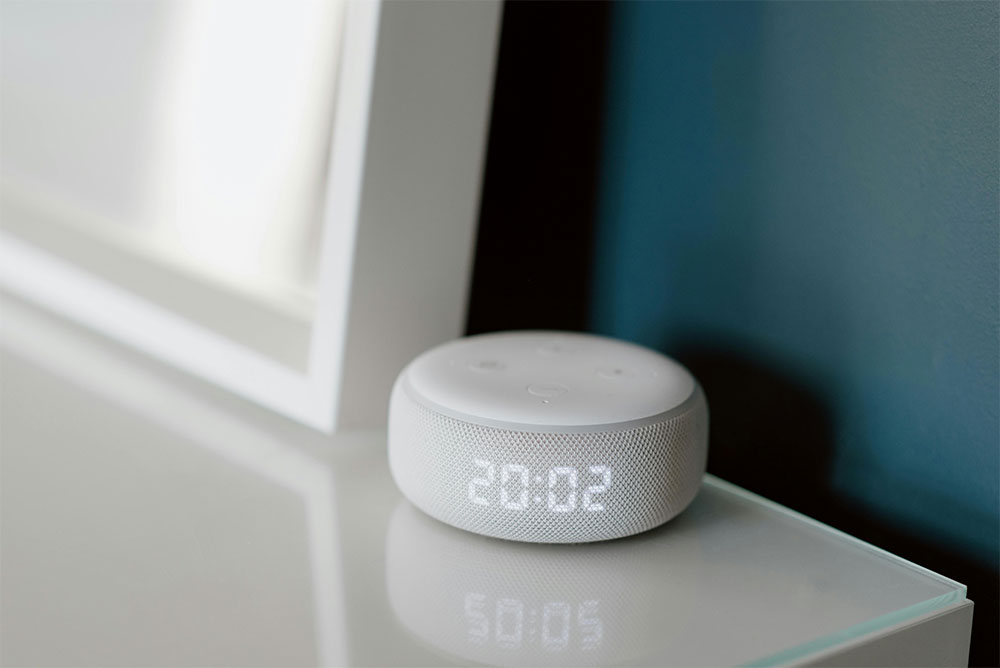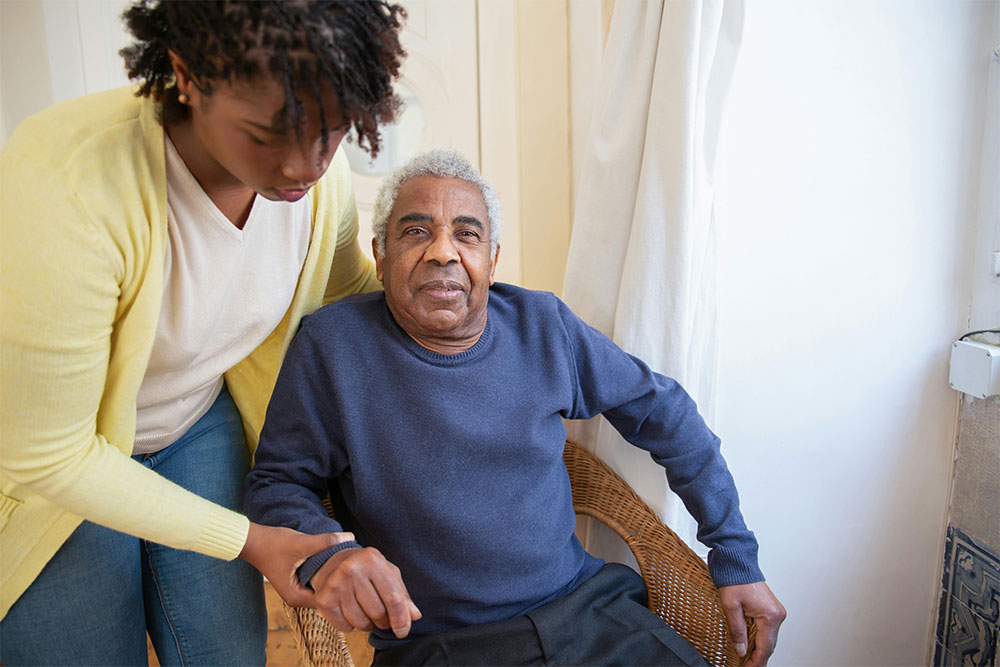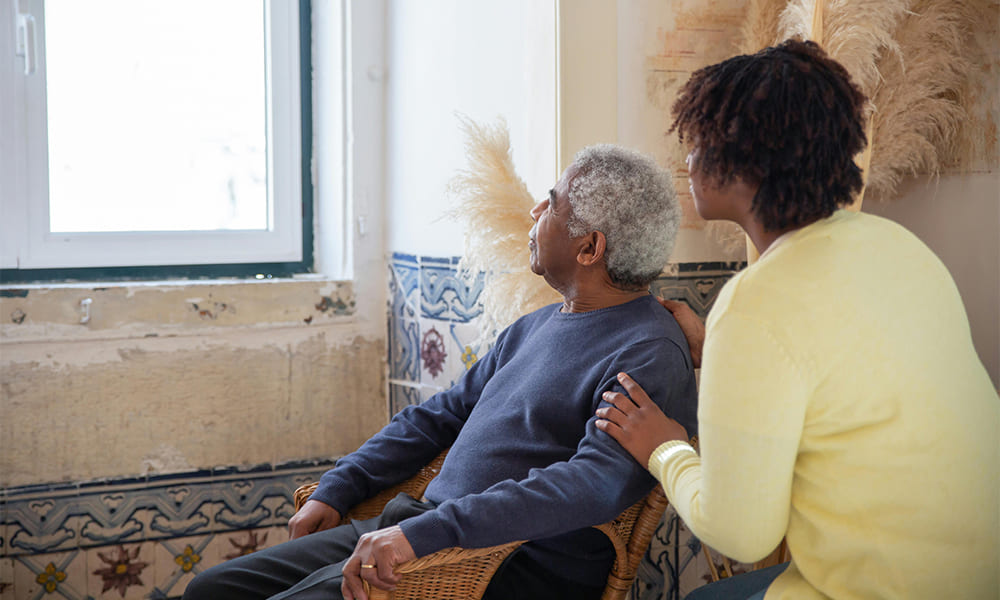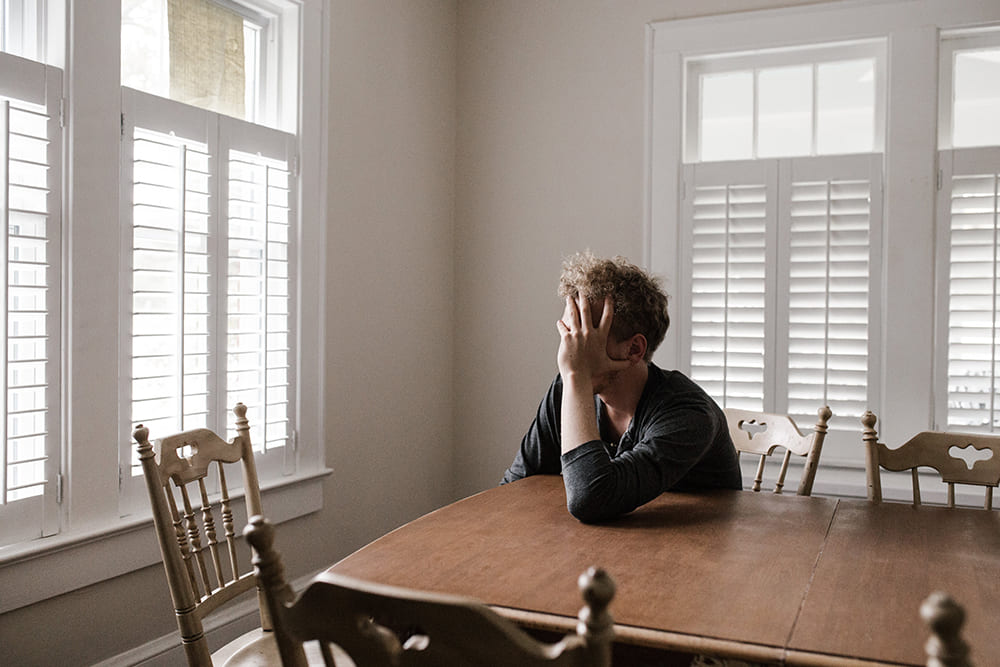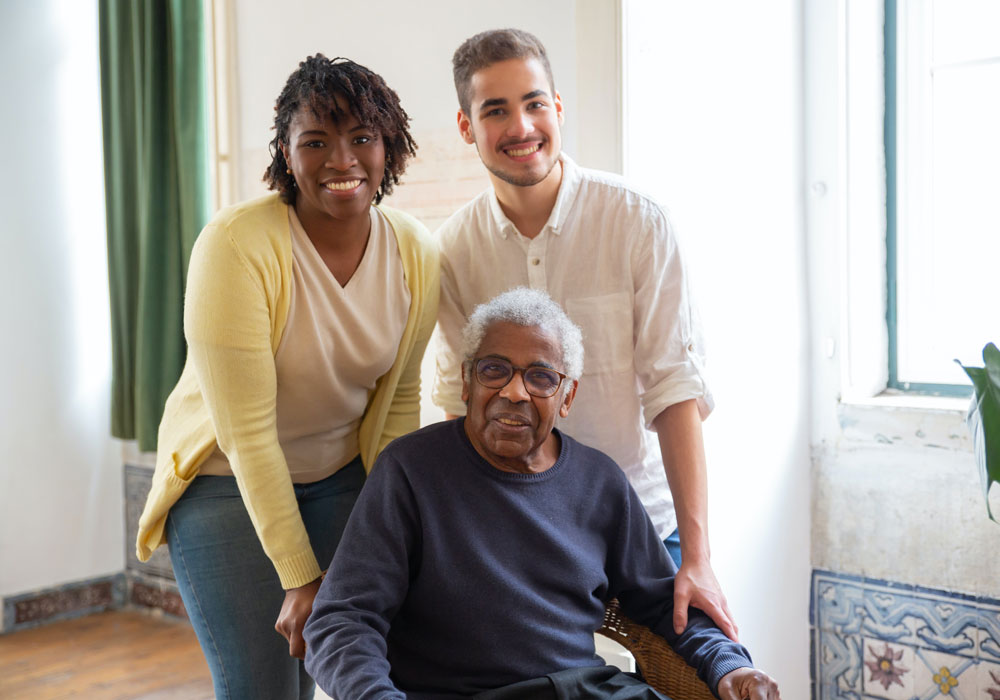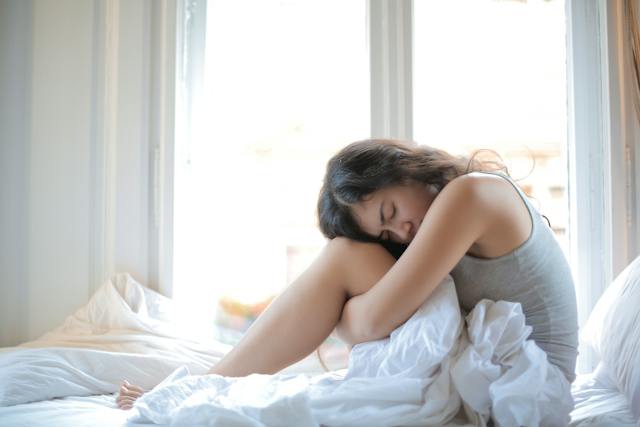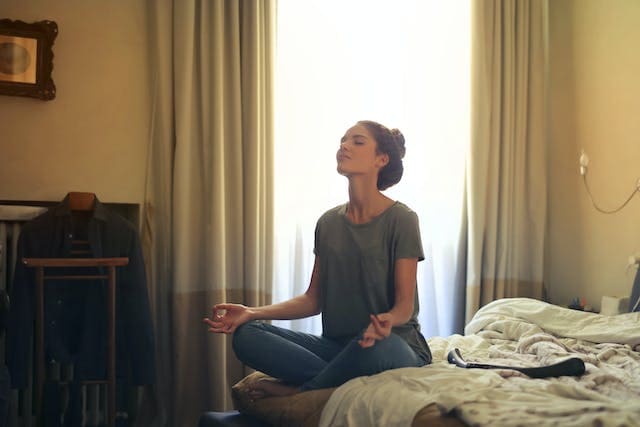Discovering the link between sleeping position and dementia is crucial for understanding brain health and prevention strategies. In this article, we will look into the connection between sleep posture and dementia risk, including insights on optimal sleep postures for brain health and dementia prevention.
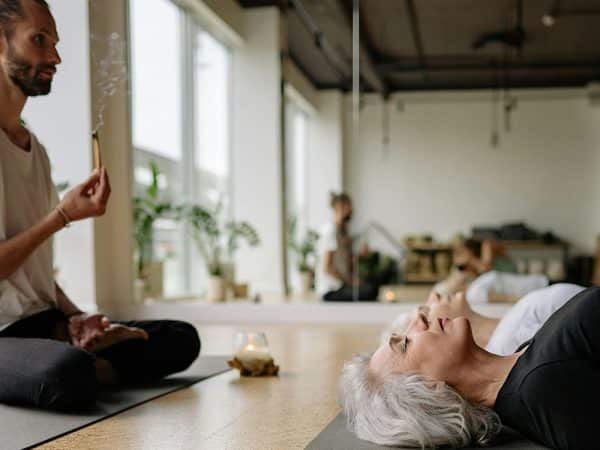
Christopher Ravn
Key Takeaways
1. Sleeping on one's side, particularly the left side, may aid in clearing waste from the brain, potentially reducing the risk of dementia.
2. Sleeping on one's back could impair waste clearance mechanisms in the brain and may be linked to an increased risk of dementia, including Alzheimer's.
3. Maintaining a regular sleep schedule and creating a conducive sleep environment can help mitigate nighttime restlessness and alleviate worsening dementia symptoms.
Table of Contents
1. What Sleeping Position Is Linked To Dementia?
2. Supine Sleep Position And Dementia
3. Why Is Sleeping On Your Back Linked To Dementia?
4. Which Sleeping Position Is Linked To Alzheimer's? Harvard Studies
5. Could Your Sleep Position Reduce Alzheimer’s Risk?
6. What Is The Best Sleeping Position?
7. How Does Dementia Get Worse During The Night?
8. Sleep Advice For Seniors To Reduce Dementia Risk
9. Frequently Asked Questions About What Sleeping Position Is Linked To Dementia
What Sleeping Position Is Linked To Dementia?
When considering the link between sleeping positions and the risk of developing dementia, particularly Alzheimer’s disease, it’s crucial to acknowledge that research suggests a connection with one’s sleeping side. There are indications that sleeping on the left may be associated with a lower risk of dementia, although this differs from sleeping on one’s back or stomach. The exact correlation is not fully understood, but there are several theories.
One theory suggests that sleeping on one side of the body aids in clearing waste products, such as beta-amyloid from the brain, which is a marker for Alzheimer’s disease. Impaired clearance of these substances may contribute to their development. Another theory proposes that certain sleeping positions may impact the lymphatic system, which plays a vital role in removing toxins and promoting good brain health during sleep.
Moreover, factors like sleep quality and breathing patterns during different sleep positions may also affect brain health. Therefore, further research is needed to elucidate the correlation between sleeping position and the risk of dementia. This will help gain a better understanding of whether sleep interventions targeting one’s sleep position could potentially reduce the risk of developing dementia.
Best Sleeping Positions For Brain Health And Dementia Prevention
The best sleeping positions for brain health and dementia prevention are tied to specific sleeping styles. This sleeping style may enhance brain health and thus, reduce the risk of dementia. It is the lateral sleeping position, which means sleeping on one’s side, that has generated a lot of interest due to the benefits it provides. Thus, sleeping on the left side may help to remove waste from the brain. This includes beta-amyloid, which is the protein that is known to may trigger Alzheimer’s. The sleeping position may help to facilitate the brain’s glymphatic system, which is linked to helping to clear toxins and boost brain health during sleep.
Thus, it is recommended that certain sleeping positions could possibly help to enhance brain health and reduce the risk of dementia. As mentioned, the lateral sleeping position, which is sleeping on the left side, has gathered a lot of raves because there is a potential that it may help to optimize cerebrospinal fluid flow. This helps with removing waste and reducing the risk of Alzheimer’s and dementia. Though there still needs to be a lot of study on the mechanisms as to how these affect brain health, it is still a viable option to consider adding lateral sleeping positions into your nighttime routine.
Overall, by focusing on sleep quality and adopting good sleep positions that may promote effectively removing waste and helping with brain health would be a positive move towards preventing dementia. However, one needs to factor in the comfort level, work on brain exercises for seniors when considering sleep patterns for optimal brain health.
Supine Sleep Position And Dementia
Supine sleep position, also known as sleeping on one’s back, is tied to the potential impacts on brain waste clearance mechanisms that could possibly influence the risk of dementia. Hence, there has been research that suggests unlike sleeping in a lateral position, the supine position may produce less metabolic or waste reduction from the brain. Sadly, this would also include beta-amyloid.
There are several factors that contribute to this issue. The first would be that the supine position does not offer much benefit to the glymphatic system. This is because the glymphatic system is responsible for clearing waste from the brain, and it will not be active if the body is in a supine sleep position. Thus, it could potentially lead to the accumulation of beta-amyloid and other toxins that may be linked with dementia.
It is also noted that the supine position is linked with an increased risk of sleep-disordered breathing. One of these conditions is obstructive sleep apnea (OSA), which is tied to cognitive decline and possibly may increase the risk of dementia. Thus, by having a combination of reduced glymphatic system activity and compromised breathing patterns during supine sleep, it may contribute to a higher risk of dementia.
Why Is Sleeping On Your Back Linked To Dementia?
Sleeping on your back, or the supine sleep position, is linked to dementia due to the impact it has on brain health and cognitive function. Hence, when sleeping on your back, it is important to remember that the glymphatic system, which helps with clearing waste from the brain, renders itself ineffective. This is not the same for the lateral sleeping position. Thus, the inefficiency could be attributed to the accumulation of beta-amyloid and other harmful substances that could harm the brain and cause it to develop dementia and Alzheimer’s. Thus, it is also important to find ways on how to help someone with dementia remember about sleeping on their left side.
To add on, the supine sleeping position may worsen conditions such as obstructive sleep apnea (OSA). This happens when there is a shortage of breath during sleep. Thus, OSA has been tied to cognitive decline and increased risk of dementia. So, by having both OSA and a reduced glymphatic system could lead to a higher risk of dementia.
So, it is important to understand the link between sleeping on one’s back and cognitive decline, thus underscoring the importance of incorporating alternative sleep positions as a means of dementia prevention strategy. It is important there needs to be further research to elucidate the mechanisms that are tied to this understanding. Therefore, there needs to be more exploration to understand this association and to see how this can be dealt with to reduce the risk of supine sleep position on brain health.
We Believe Prioritizing Brain Health Enhances Your Quality Of Life
Get to know our team, our mission and how our EVY LIGHT® can provide you and your loved ones with a fuller life, letting you breathe a little easier.
Which Sleeping Position Is Linked To Alzheimer's? Harvard Studies
There are several studies, including those conducted by Harvard researchers, that show the link between the supine sleep position and its connection to Alzheimer’s. In their findings, it has been shown that there may be an association of sleeping on one’s back with an increased risk of developing Alzheimer’s.
In one study posted on Neuroscience News, people who slept in a supine position showed higher levels of beta-amyloid in their brains. Another study from Harvard Medical School showed that people who slept on their backs exhibited greater signs of cognitive impairment and Alzheimer’s-related changes. This was observed comparatively in the brain structure with those who slept in other different positions.
Sadly, there still needs to be a lot of research done because it is not fully understood regarding the link between impaired clearance of beta-amyloid and other metabolic waste products from the brain during supine sleep. To add on, this sleep position could worsen conditions like sleep apnea. As we have stated, sleep apnea is also tied with cognitive decline and Alzheimer’s risk.
Though we still need to have a lot of research to confirm these hypotheses on the underlying link, there is evidence that supports it. That is, there is research that shows the potentiality of sleeping on one’s back with the role in developing Alzheimer’s.
Could Your Sleep Position Reduce Alzheimer’s Risk?
There is research that suggests that certain sleep positions could possibly lower the risk of developing Alzheimer’s. One of these positions is sleeping on one’s side, which may influence the brain’s pathway for clearing waste from the body. This waste is typically the protein called beta-amyloid, which is linked to Alzheimer’s. Thus, sleeping on one side, particularly the left side, could help purge waste better from the brain compared to sleeping on your back or stomach. This is because the lateral sleeping position helps optimize the glymphatic system, which clears toxins from the brain while you sleep.
Therefore, promoting effective waste removal from the brain through a specific sleep position is important to prevent the buildup of harmful proteins that could increase the risk of Alzheimer’s. However, more research is needed to confirm these findings and provide better understanding to those who may need to change their sleep position. Although this change may seem trivial, it could possibly help reduce the risk of Alzheimer’s in the long run.
What Is The Best Sleeping Position?
The best sleeping position could vary from person to person. However, it has been scientifically speculated that sleeping on one’s side is the best sleeping position for overall health. That is, sleeping on the left side may offer benefits such as healthy digestion. It helps the natural flow of stomach contents into your intestines and promotes optimal draining of the lymphatic system.
Additionally, it is also said that sleeping on the left side may help improve circulation. This is because it reduces pressure on internal organs such as the liver and lungs. Thus, these factors are associated with better sleep quality and comfort. However, it needs to be understood that there is no one-size-fits-all solution. By sleeping on your left side, you may experience improved digestion and overall well-being.
Right Side Vs Left Side
So, what’s the difference between sleeping on the right side vs left side? Let’s explore. Sleeping on the left side and the right side each have their own benefits when it comes to brain and heart health. Research has indicated that those who sleep on the left may benefit from better circulation and blood flow to vital organs like the heart and brain. Sleeping in this position aids cardiac function, reducing pressure on the heart and facilitating better blood flow, thereby lowering the risk of heart diseases. Additionally, sleeping on the left helps improve digestion and facilitates waste clearance from the body.
In contrast, sleeping on the right side may exert pressure on internal organs, especially those involved in digestion, causing discomfort. While there are differences between sleeping on the left and right sides, it can be said that each position provides distinct benefits and comforts for overall health. Overall, one needs to consider the sleeping position that is believed to be linked to their underlying condition and comfort.
Sleeping Positions That Increase Heart Health
Sleeping positions that promote heart health are linked to sleeping on the left side, known as the lateral position. It is believed that this position enhances circulation and blood flow to the heart, thereby reducing pressure on the cardiovascular system. Additionally, sleeping on the left side may assist in draining the lymphatic system, contributing to overall cardiovascular health.
However, sleeping on the right side may exert pressure on the heart and other vital organs in the body, potentially leading to discomfort and strain on the cardiovascular system. While the benefits of either side may be subtle, it would be beneficial for those with certain heart conditions to sleep on the left side. Overall, adopting the right sleeping position may contribute to better heart health and overall well-being.
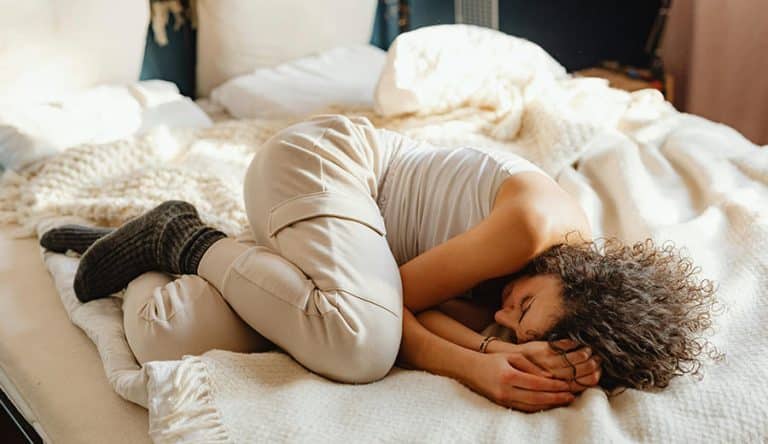
How Does Dementia Get Worse During The Night?
Dementia often worsens at night due to a phenomenon known as sundowning. This could be attributed to various factors, including changes in the sleep-wake cycle, reduced environmental stimuli, and alterations in the internal body clock. Additionally, individuals with dementia may experience increased confusion, agitation, and anxiety during nighttime hours.
Numerous triggers contribute to the exacerbation of dementia symptoms at night, such as fatigue, pain, discomfort, and medication side effects. Moreover, factors like darkness and changes in surroundings can further exacerbate agitation and confusion.
Caregivers should establish a consistent bedtime routine and provide ample daytime stimulation as strategies to mitigate nighttime restlessness and alleviate worsening dementia symptoms. It is crucial to create a comfortable sleeping environment and minimize alcohol and caffeine consumption in the evening. Additionally, healthcare professionals should offer appropriate care and medication adjustments to address issues associated with nighttime deterioration in dementia.
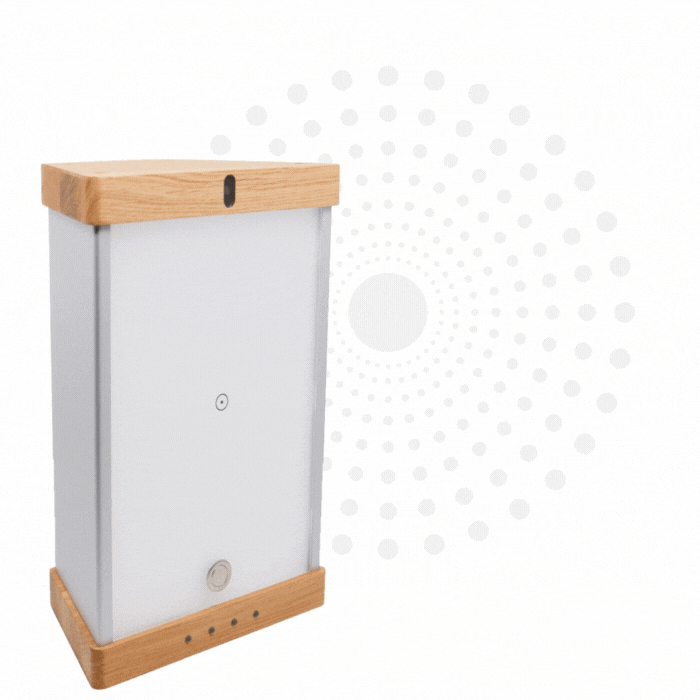
Enhance your brain performance through the power of light.
Comfortable and easy to use 40Hz light therapy to support and improve your brain function.
View Our LightSleep Advice For Seniors To Reduce Dementia Risk
When it comes to sleep advice for seniors to reduce the risk of dementia, it’s important to prioritize the adoption of specific sleep positions, such as the lateral sleeping position. Seniors should use supportive pillows to help them sleep comfortably on one side, ensuring optimal brain health. Placing a pillow between the knees can help align the spine and reduce pressure points.
Additionally, seniors should maintain a consistent sleep schedule and establish a relaxing bedtime routine to enhance sleep quality. Creating a conducive sleep environment by keeping the bedroom dark, quiet, and cool can also promote better sleep.
Overall, seniors should focus on staying physically active, managing stress levels, and maintaining a well-balanced diet to contribute to better sleep and reduce the risk of dementia.
Learn What Others Have Experienced with EVY Light
See how others have achieved a sharper mind by activating their gamma brainwaves in combination with maintaining a healthy lifestyle.
Frequently Asked Questions About What Sleeping Position Is Linked To Dementia
What Sleeping Position Is Linked To Dementia?
When considering the link between sleeping positions and the risk of developing dementia, particularly Alzheimer’s disease, it’s crucial to acknowledge that research suggests a connection with one’s sleeping side. There are indications that sleeping on the left may be associated with a lower risk of dementia, although this differs from sleeping on one’s back or stomach.
What Is The Best Sleeping Position?
The best sleeping position could vary from person to person. However, it has been scientifically speculated that sleeping on one’s side is the best sleeping position for overall health.





